
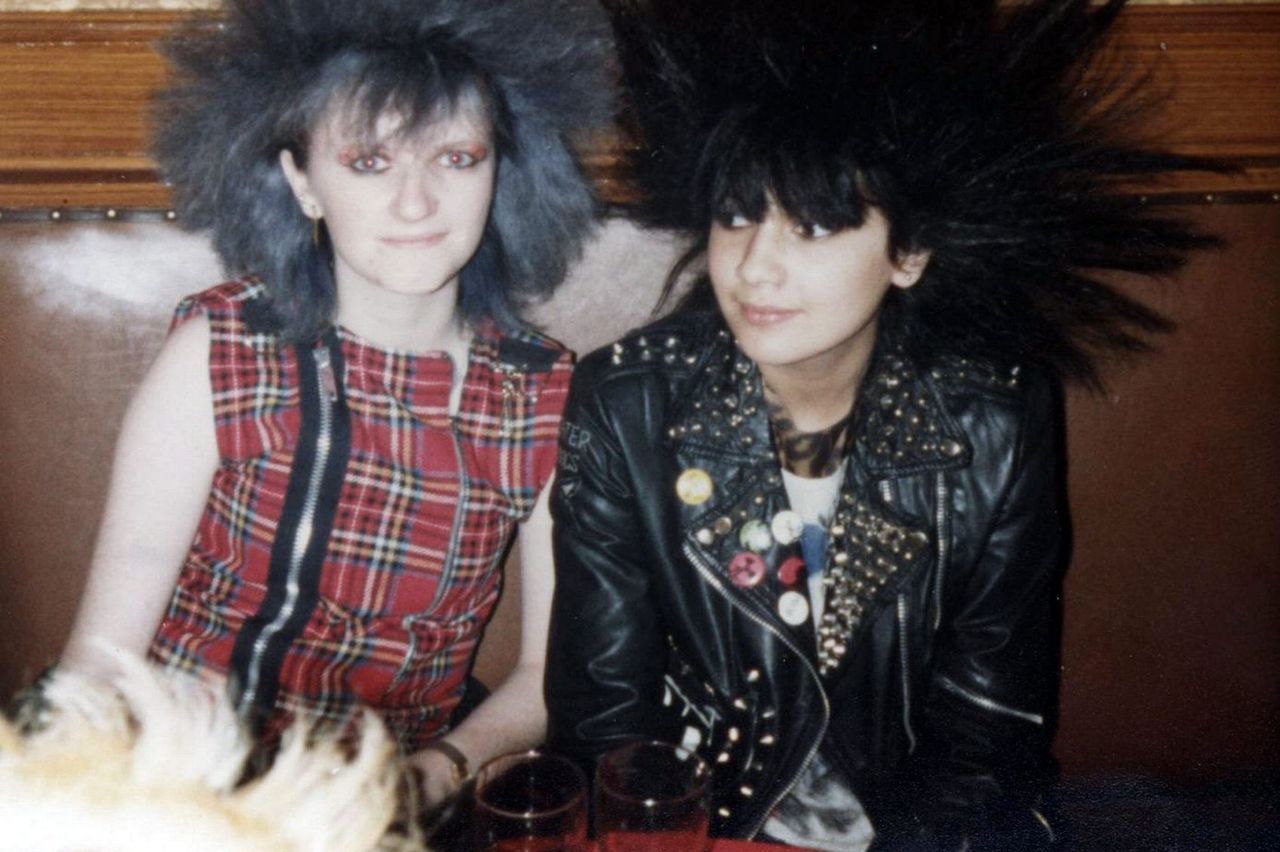
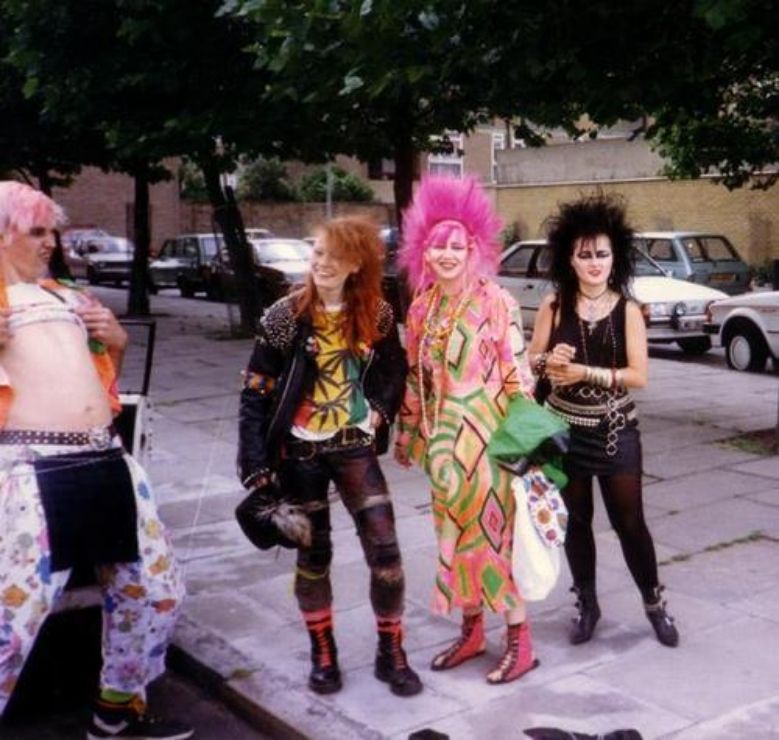
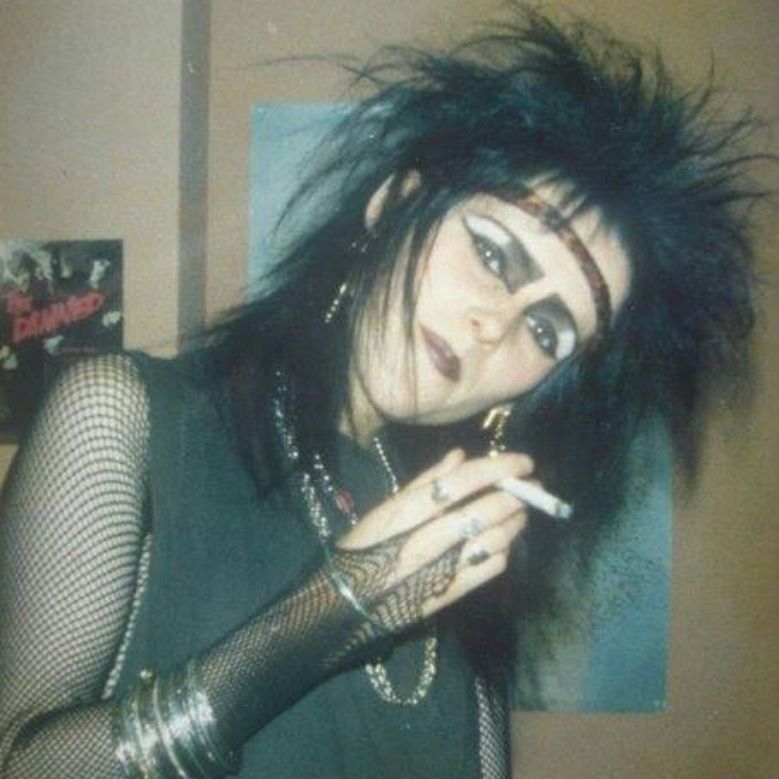
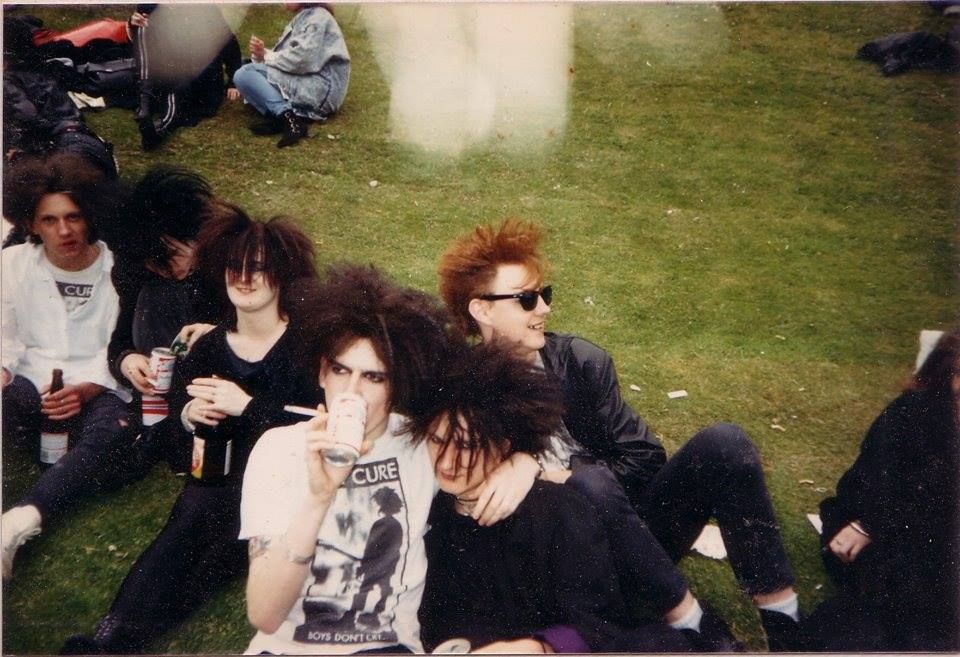
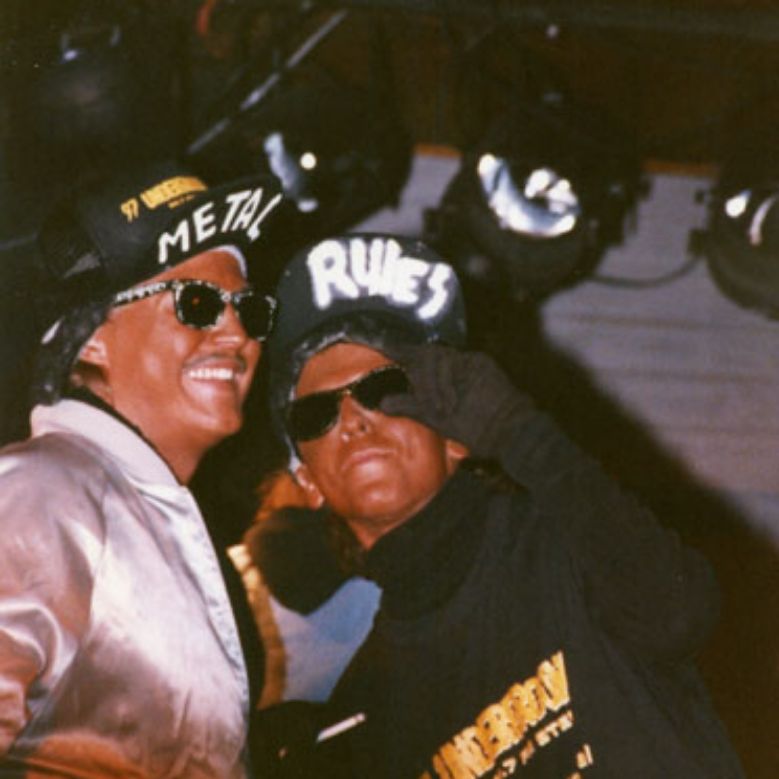
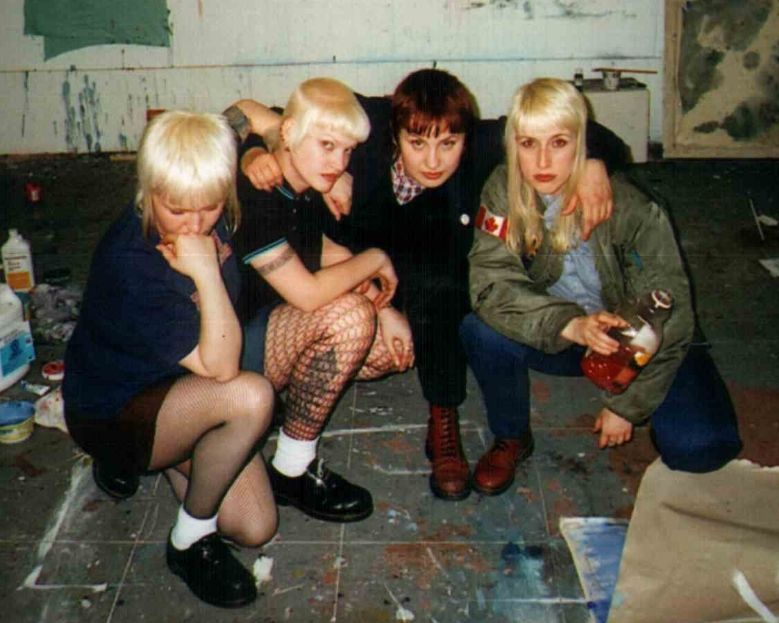
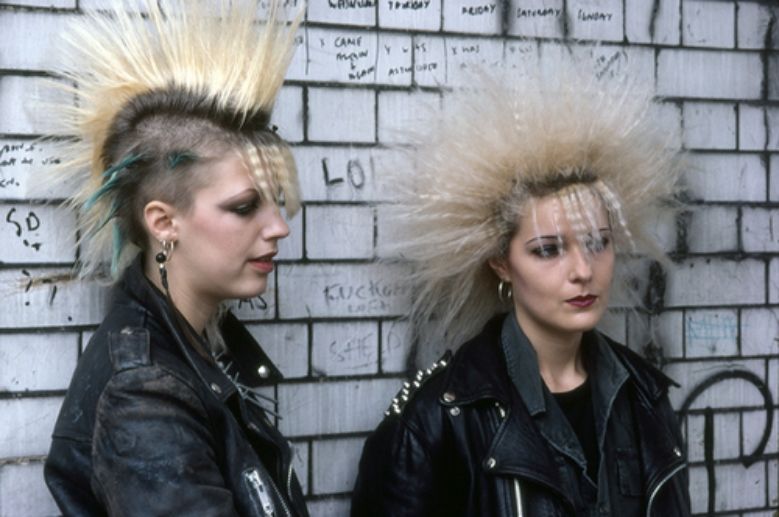

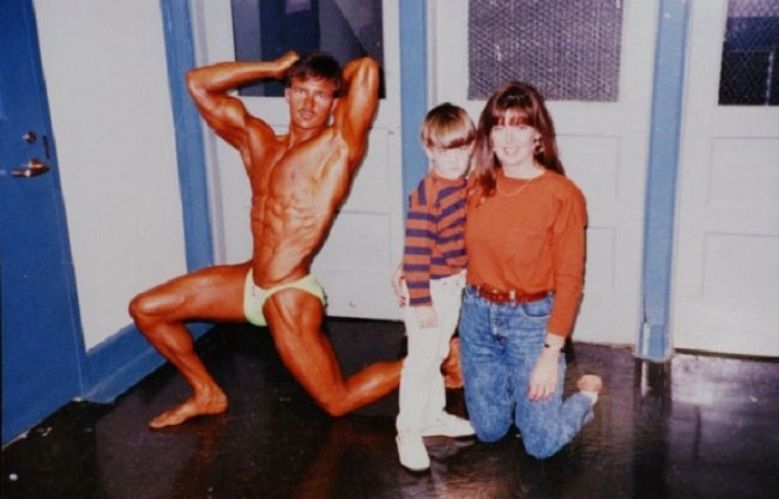
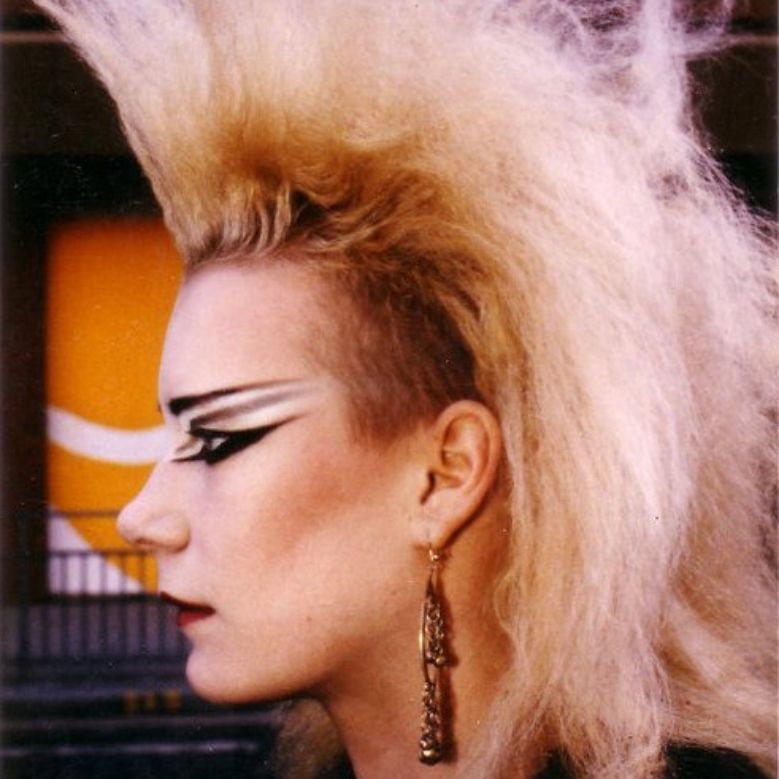
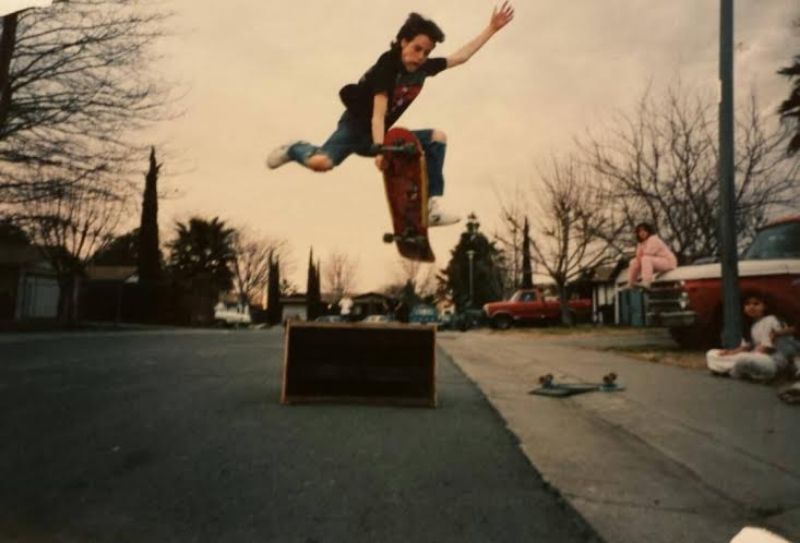
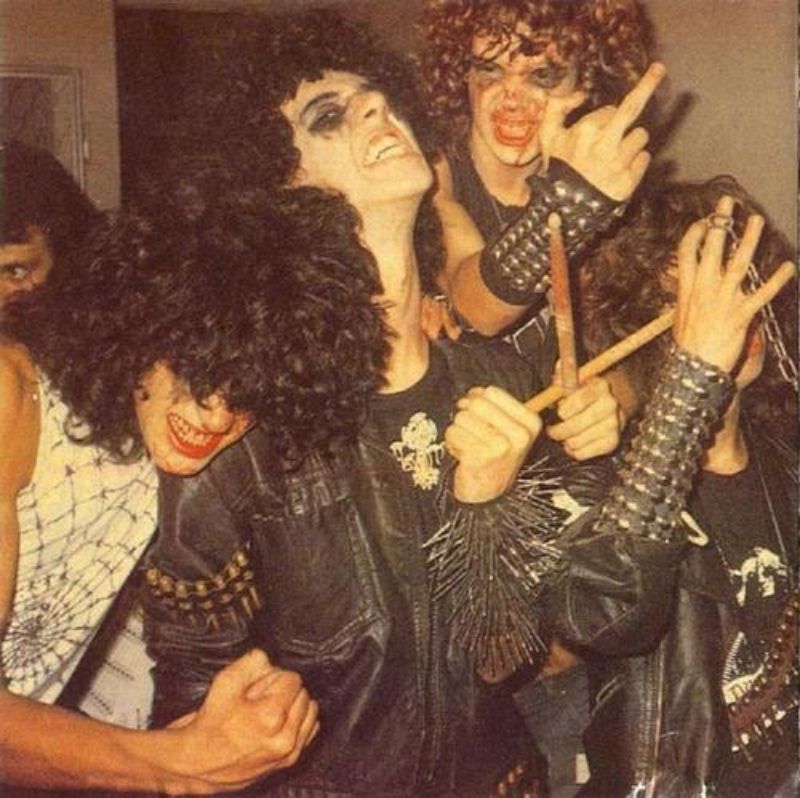




RAÚL SALGADO | @raulsalgado | Ferrol | Viernes 2 mayo 2014 | 17:50
Gabriel Toimil, hijo de Amada García, ha fallecido en la madrugada de este viernes. Su madre fue condenada a muerte por un consejo de guerra durante la contienda civil iniciada en 1936, retrasándose su fusilamiento hasta que alumbró a Toimil. La asociación Memoria Historia Democrática recuerda cada año a la mugardesa en el foso de la fortaleza de San Felipe, al igual que a otras víctimas de la represión franquista.
El sepelio tendrá lugar a las 12:00 horas de este sábado en el cementerio parroquial de Serantes, en Ferrol. La entidad Fuco Buxán ha recordado este viernes que participó en diversos homenajes a su madre y en el largometraje A pegada dos avós, dirigido por Xosé Abad y que también se refiere al caso de Amada García, que murió en enero de 1938.
El PSdeG-PSOE de Ferrol también ha lamentado el fallecimiento de Toimil, nacido el 31 de octubre de 1937 en el antiguo Hospital de Caridad de la ciudad.












O proxecto EUvox, elaborado por expertos de todo o continente e impulsado pola propia Eurocámara, vén de lanzar unha ferramenta para amosarlle á cidadanía que formacións políticas están máis próximas ás súas preferencias políticas e elaborar unha base de datos sobre o comportamento electoral na UE.
A trio of Sand Cats was born in April at the Czech Republic’s Zoo Brno. The genders of the kittens are not yet known. These petite cats weigh less than seven pounds (3.2 kg) as adults.
Photo Credit: Zoo Brno
These cats are native to northern Africa and southwestern Asia. They are the only wild cats living in true deserts, often far from water. Thick fur protects their paws from the hot desert sand. In extreme heat, they duck into burrows dug by foxes or porcupines, but they can also tolerate very cold temperatures.
Sand Cats hunt small rodents, primarily at night. Their hearing is extremely well developed, allowing them to detect prey underground. Studies have shown that Sand Cats travel three to six miles (5-10 km) each night in search of prey.
Though not currently threatened, Sand Cats live in fragile environments and are not legally protected within some countries. They are bred in zoos as part of the European Endangered Species Programme.
 Uno de los capítulos más perturbadores del libro Un antropólogo en Marte, de Oliver Sacks, es el que se refiere al caso de un paciente incapacitado para ver en color: su vida pasa por delante de sus ojos en blanco y negro, como en una película clásica. A la hora de comer espagueti, sin embargo, la idea un Bogart resolviendo un caso se borra de un plumazo: el paciente siente repugnancia, se siente como si comiera gusanos.
Uno de los capítulos más perturbadores del libro Un antropólogo en Marte, de Oliver Sacks, es el que se refiere al caso de un paciente incapacitado para ver en color: su vida pasa por delante de sus ojos en blanco y negro, como en una película clásica. A la hora de comer espagueti, sin embargo, la idea un Bogart resolviendo un caso se borra de un plumazo: el paciente siente repugnancia, se siente como si comiera gusanos.
A pesar de que el sabor del plato no ha cambiado, sí que lo ha hecho el color. Y los colores son importante para los sabores. Como lo son las texturas. Y, a su vez, los sabores son fundamentales para comer. Hasta el punto de que las personas que ha sufrido un cáncer y tienen los receptores del sabor destruidos a causa de los tratamientos de radiación, pueden tener serios problemas a la hora de alimentarse.
Por mucho que los pacientes sin sabor informen a su cerebro de que deben comer, se sienten como si comieran cartón. Se atragantan. Sienten asco infinito. Tal y como abunda en ello Mary Roach en su libro Glup al abordar cómo los aromas también pueden potenciar los sabores:
El gusto y el olfato están entrelazados de manera que no podemos apreciar conscientemente. Los ingenieros de alimentos a veces explotan la sinergia entre ambos. Al añadir fresa o vainilla (aromas que asociamos con la dulzura) es posible engañar a la gente y pensar que la comida es más dulce de lo que realmente es. Aunque engañoso, no es necesariamente malo, porque significa que el producto puede contener menos azúcar añadido.
Del mismo modo, las salsas de las comidas precocinadas son básicamente mejoradores de la palatabilidad para humanos. El proceso de cocción del pollo en un plato para microondas tiene un sabor muy tenue o casi inexistente. El sabor proviene casi por completo de la salsa. Y lo mismo ocurre con un Cheeto, que sin su cobertura de polvo que añade sabor al conjunto, convertiría el snack en algo casi incomestible por su ausencia casi total de sabor.
Foto | Eloquence
-
La noticia Somos incapaces de comer cosas sin sabor fue publicada originalmente en Xatakaciencia por Sergio Parra.
 A pesar de lo difundida que está la idea, el alcohol no mata neuronas (el mito probablemente surgió a raíz de un estudio de 1990 donde Harper y Krill hallaron que los alcohólicos tenían menos neuronas). Antes de ir a celebrarlo con una cerveza, en cualquier caso vale la pena matizar esta afirmación.
A pesar de lo difundida que está la idea, el alcohol no mata neuronas (el mito probablemente surgió a raíz de un estudio de 1990 donde Harper y Krill hallaron que los alcohólicos tenían menos neuronas). Antes de ir a celebrarlo con una cerveza, en cualquier caso vale la pena matizar esta afirmación.
Beber en exceso es perjudicial para la salud. Beber, a largo plazo, acarrea problemas en el hígado, el páncreas y el sistema circulatorio. En ese sentido, el cerebro es el que queda más al resguardo de lesiones.
Si bien es cierto que los alcohólicos presentan tasas significativamente más altas de fallos de memoria, trastornos de conducta, trastorno de déficit de atención y demencia, y que el cerebro se encoje (según revelan exámenes con resonancia magnética), el alcohol no mata literalmente ninguna neurona. El número de neuronas no desciende por beber.
En un estudio de 1994 publicado por The Lancet, dos neurólogos daneses comprobaron ya que el número de neuronas de la corteza cerebral (la “materia gris”), que es donde tiene lugar el razonamiento, entre bebedores y abstemios era idéntico.
Lo que sí advirtieron es que la “materia blanca” era mucho menor en cerebros de alcohólicos, y las células nerviosas que quedaban estaban atrofiadas. La materia blanca es menos esencial que la gris, y además las neuronas no estaban muertas, sino atrofiadas: es decir, que los daños son reversibles, según Roberta Peyney, bióloga celular especializada en alcoholismo crónico.
 Otro estudio que refrenda esta idea es el publicado en The Journal of Neuroscience Ethanol enhances neurosteroidogenesis in hippocampal pyramidal neurons.
Otro estudio que refrenda esta idea es el publicado en The Journal of Neuroscience Ethanol enhances neurosteroidogenesis in hippocampal pyramidal neurons.
¿Entonces cómo se explica el síndrome de Wernicke-Korsakoff, que es un trastorno que degrada la memoria y la coordinación de los alcohólicos? Pues por el déficit en tiamina, una vitamina B que el alcohol puede inhibir. Es decir, que el alcohol, en sí mismo, no es quien provoca el síndrome, y por tanto podría evitarse añadiendo tiamina a las bebidas alcohólicas, tal y como añadimos yodo a la sal de mesa.
No hay que abusar del alcohol, pero tampoco hay que diseminar la idea de que, por cada cerveza ingerida, hemos matado un puñado de neuronas. Casi todos los efectos del alcoholismo en el cerebro pueden revertirse con un periodo prolongado de abstinencia o consumo moderado.
De hecho, según un estudio publicado en la American Journal of Epidemiology por Annie Britton, de la University College London, el consumo moderado de alcohol incuso podría mejorar el rendimiento cerebral.
Vía | Medciencia Fotos | Jorge Royan | MethoxyRoxy
-
La noticia ¿Es verdad que el alcohol mata neuronas? fue publicada originalmente en Xatakaciencia por Sergio Parra.

I’ll admit it: I’ve taken the “How Basic Are You?” quiz, the “Which City Should You Actually Live In?” quiz, the “Which Parks and Rec Character Are You?” quiz… The list goes on and on. You name it, I’ve probably taken the BuzzFeed quiz that corresponds with it. Really, I’ve even taken the quiz to see if I’m an Intolerable Intellectual (the results: only slightly).
I’m not the only one, either. Every day there are quiz results on my Facebook newsfeed, and BuzzFeed keeps churning out questionnaires to keep up with the continued success. People are not only filling out these things, but they’re sharing results with the world. Why do they do it? Why do all of us take these quizzes in the first place? And why is it so damn embarrassing to admit?
Here’s the thing: we’re all perfectly capable of figuring out which city we should really live in on our own. (We all have chosen to live in cities, after all, since that’s how we’ve come to live where we’re living.) It’s the quiz, though, that allows us to lay our souls bare for the hope of an illuminating result, an answer to the questions we’ve asked of ourselves every day of our small lives. If every day is a blank space waiting to be filled in, a BuzzFeed quiz is the way of seeing if those spaces were filled in meaningfully.
I’m exaggerating, of course. These quizzes are, at their core, meant to be fun, and silly. “Which Arbitrary Thing Are You?” is the ultimate testament to how frivolous these things are, and yet at the heart of every fun activity there’s serious meaning behind it. But why do we all feel so driven to answer these questions and publicly share how we rank? Why have BuzzFeed’s questionnaires been so darn successful?
Summer Anne Burton, managing editorial director at BuzzFeed, spoke to Huffington Post about the quizzes. She was one of the first people to come up with the idea for the site, and explained their theory behind their success. “I think our most successful quizzes are mostly built so that the results feel personal and that you can relate to them. The answers genuinely correspond to the results,” she said.
It makes sense, too. The quizzes I see on my newsfeed aren’t posted haphazardly; the user feels a personal connection to the result they receive (whether it corresponds with their anticipated result or differs greatly). There’s something deeply personal about what questions we’re choosing to answer, whether or not we are fully ready to admit it.
Slate’s piece on the phenomenon brings up an important point: our desire to quiz ourselves is far from a new concept.
Rorschach tests were widely popular in the 1920s, and relationship quizzes have been Cosmo’s bread and butter since the ‘60s… The Myers-Briggs Type Indicator is a more intellectually accepted version of this quiz, and I’ve heard friends rattle off the four characters that supposedly define their personality—ESTJ? INTP?—like their Social Security numbers.
The love of quizzes transcends the millennial generation, and certainly draws in all types of people. You could be a 60-year-old banker or a 14-year-old high school student; chances are, you’ve taken some form of self-assessment. (Whether or not you’re willing to admit it is another matter altogether.)
We’ve always craved the feeling of categorization, both for ourselves and others, and just can’t help looking for more sources. “We like to believe the world is categorize-able,” Slate’s Emma Roller wrote. The world feels safer, less anxiety-inducing when there’s some logic to hold onto. We ourselves feel safer when we’re categorized, too, and that’s why we’re so drawn to the results we receive on a quiz. Slate tells us that the quizzes “provide us with the instant affirmation that we share some part of ourselves with other people (or cities, or David Lynch characters, or Bill O’Reillys) that we admire.” It’s hard to disagree. We’re aligning ourselves with a label that will tell us who we are, and we’re eating up every last bit of it.
What’s more, we’re able to share this information with others. It’s not enough to find out the results of our quiz; we have to share the information in order for it to be fully realized as a meaningful revelation. The final step of the BuzzFeed process is sharing on our newsfeeds what we’ve learned, and that’s the most crucial piece of the puzzle. We want to know ourselves, but we really want others to know us, too.
Does that make us quiz takers shallow? I don’t think so. No one is truly believing that the results of these things sum up their lives. That would be silly. Quiz-takers do, however, have reason to share with others the grade they’ve received–a desire for connection. Every post you see on your newsfeed is a person crying out to be heard, whether you want to admit it or not. That’s where the vulnerability comes in.
It’s embarrassing to admit that you’re sharing a part of yourself with people. A real, meaningful part of yourself. It’s easy to toss aside quiz results as a silly post, but when people start feeling vulnerable they start getting embarrassed. It’s a natural response, and it’s how we keep ourselves guarded from what’s really going on: you’re standing up and saying, “I, a person of this world, want to share my anxiety regarding my own identity in the form of my excitement with the fact that I was told I was similar to a character in a television show. I wouldn’t be sharing this if I didn’t care, and goddamnit, I do.”
The irony of avoiding this reality, of course, is that the moment at which we reach out for connection, we’re facilitating our own retreat from what could lead to real vulnerability. We’re hiding behind the agreed-upon silliness of quiz results, and avoiding the real conversation. So instead of grumbling at our filled-up newsfeeds, and pretending we don’t take as many quizzes as we really do, why not stop and realize what’s going on? We’re a bunch of humans asking our fellow humans to connect and share in the scary reality that is being alive. What’s so embarrassing about that?

A bit more than 20 years ago, iconic producer Steve Albini wrote an essay titled “The Problem With Music.” In it, he basically showed how horrible a beast the music industry was (and pretty much still is) at that time. The essay discussed how a band could sell hundreds of thousands of records–but still end up massively in debt due to just how much contracts favored the labels. Now he has ruffled the feathers of the industry again as he called free music file sharing, “…the single best thing that has happened in my life time, after punk rock…”
Speaking to Quartz, Alibini stated that the biggest change the industry can’t deal with is that, “Music is no longer a commodity, it’s an environment, or atmospheric element. Consumers have much more choice and you see people indulging in the specificity of their tastes dramatically more. They only bother with music they like.”
To put it succinctly: freedom of choice is a good thing.
Basically, until the rise of digital music and peer-sharing, a band that wanted to get noticed had to convince a label that they would be profitable, and then adhere to any rules and wants of that label. Since that is no longer the case, the playing field hasn’t been so much leveled, as it has been completely demolished, and a band can, in theory, have a successful career without ever signing to a label.
Albini also took some time to discuss streaming services, calling things like Pandora and Spoitify, “…extremely convenient for people who aren’t genuine music fans, who don’t want to do any legwork in finding bands…”
When the conversation turned to the long standing claim that such services were not paying the bands enough, Albini said that the numbers were not as simple as most make them out to be, and complaining that streaming music doesn’t pay as much as terrestrial radio is, “…like complaining that cars are going faster than horses.”
Summing up the entire current reality of music better than almost anyone else, Alibni said that the rise of the internet has been “tremendously good” for both creators and fans but, “…really bad for businesses that are not part of that network, the people who are siphoning money out. I don’t give a fuck about those people.”
Joel Freimark hosts a daily music-related webseries HERE and you can follow his daily music musings and suggestions HERE as well.
Image: Blogspot

Every single time I post something about a rapist or other terrible criminals going to prison, part of me gets really antsy. Because I know–I just know–that someone is going to make some sort of comment about how he’ll “get what is coming to him” in prison when he gets raped. And, when that inevitably happens, I get the full-body cringe-rage.
I’ve seen so much of this lately that I feel I need to take a moment and address it.
We have a problem already in this country with people wanting to think of rape as something that is, on some level, deserved. I think this has to do a great deal with the fact that it really is the most horrific of crimes. It’s scarier than murder, on some level, because it’s something a person then has to deal with for the rest of their life. It’s the worst thing that can happen to you outside of actually dying. In order to rationalize why anyone would do such an awful thing to another human, people often try to figure out ways in which the victim has brought it on themselves. Ways in which they have “asked for it.”
When it happens to women, people want to know what she was wearing, how often she has been willingly penetrated, what she had to drink, or was she leading him on? Because blaming the victim is much easier, psychologically, than thinking that people are capable of such vile acts without being somehow driven to them. It’s easier than thinking it could happen to you. Which, yes, it very well could.
As they say, this is what we’re talking about when we talk about rape culture.
But the way people talk about prison rape is different. When someone says “Don’t drop the soap!” they think they’re being clever and funny. When people say “He’ll know what it feels like when he gets gang raped in prison!” they think they’re speaking of justice. The sort of Schadenfreude-y “eye for an eye” poetic justice that we all cognitively know is wrong. This comment is very often racially tinged as well, as the imaginary perpetrator of this “justice” is very often “a big black guy.” Which, really, says so many things that it really deserves its own blog post to unpack.
Let’s make this as clear as possible–there is not a single thing any human can do to “deserve” rape. Prison rape is an explicit violation of the 8th Amendment to our constitution, which prohibits cruel and unusual punishment. We do not punish people with rape. Rape is not a punishment, it is not justice, it should not be something considered somehow “inevitable.” It’s a violation and a crime regardless of who it is happening to.
Rape is not funny and it is not just. It’s not funny when it happens to a woman, it’s not funny when it happens to a man. It’s not “just” when it happens to a prisoner.
A 2012 study revealed that 1 in 10 prisoners in our country is the victim of sexual abuse during their incarceration. Much of that abuse is perpetrated not by fellow inmates, but by prison guards. Many victims end up getting HIV and other sexually transmitted diseases. The rates of rape and sexual abuse in our prison system have gone up considerably as our prisons have become over-crowded due to the War on Drugs, minimum sentencing requirements and zero-tolerance policies. It’s simply harder to keep track of.
For those of you who imagine that prison rape is some kind of glorious poetic justice for those who commit horrific crimes–I feel the need to remind you that those at the greatest risk for rape are juveniles who have been sentenced as adults. It’s not as though there’s some kind of “code” anyone is living up to. Our attitude towards prison rape as a culture stands as a roadblock to working to prevent it.
Our penal system is messed up as it is–largely due to our thirst for vengeance and distaste for spending any of our money on “criminals.” We have high rates of recidivism because no one cares about rehabilitating or educating prisoners here. 67% of prisoners end up back in jail for committing other crimes, often worse crimes than the ones they were originally sent there for. We have solitary confinement, which will actually drive people insane. We have the worst prison system in the so-called “First World.” I promise you, it’s already worse than it needs to be without anyone gleefully cheering on the idea of people being raped.
In addition to all this, know that cheering on something like rape takes away from you as a person. Although yes, sometimes crimes are so horrific that our id takes over and we want nothing but horror and misery to come to the perpetrator. Trust me, I understand that. But we have these rules for a reason, we have the 8th amendment for a reason–and it doesn’t have as much to do with the rights of a prisoner as it does to protect us from becoming the kind of people that cheer on “cruel and unusual punishment.” We need to be better than that. We need to prevent our ids from taking over, or else we’ll end up becoming exactly what we despise.

Illustration by Sam Taylor
I can’t remember the first time I got called a slut—probably around the time I started cocking my leg up in alleyways and acting like one. But I never had a problem with that, about being a slut or announcing myself as such. The problem I've always had is other people thinking that being a slut is a bad thing. Because it's not; being a slut is glorious.
This debate about promiscuity is about judging and shaming people—thinking that you know what’s best for them. Well, sluts don’t need your disapproval or advice on how we should live our lives. We’re quite capable of making our own, terrible drunken decisions. What I can deal with, though, is your disapproval. It’s hot. I don’t know why, just like I don't know why other people’s boyfriends taste better—they just do. And there are more and more people like me these days—come and find us on Tinder, Grindr, and all those other hook-up sites that, like, EVERYONE (even your mom) is on. We’re all sluts now.
I prefer the term "fun" to "promiscuity," because I’m a fan of good, clear English. I can only speak from my own (admittedly vast) sexual experience, but if I get into a car with a strange man, for example, and I’m pouting and he’s looking at my legs and tits and stuff, he doesn’t drive me off for a "bit of promiscuity"—he drives me off for a "bit of fun." I even looked up how the Oxford Dictionary defines promiscuity, and it says, “The fact or state of being promiscuous; immorality.”
The word is defined as "having or characterized by many transient sexual relationships." Of course, it doesn’t tell us how many is many, because—like so much of this debate—the exact amount of people you need to sleep with to qualify as promiscuous is an arbitrary judgment imposed by other people.
Also, where does time fit into all this? Let’s say an 80-year-old has had ten sexual partners over the course of her life. Is she promiscuous? Would we consider her to be a promiscuous person? Probably not. But what if she had slept with all ten of those people in the same week—back in the summer of '69—and then never had sex again for the rest of her life? Would that "equal it out"? And if so, why? What does the gap do? Why does spacing your booty calls out lend to respectability?
None of it makes sense because it’s just an idea, and a shitty one at that. Promiscuity doesn’t exist. It’s just a word people came up with to describe and judge certain human behaviors. It’s about as real as doorism. Never heard of doorism? That's because I just made it up. It describes a tendency to open doors. I opened the bathroom door this morning to take a pee, and I also opened several doors to get me from my bed to my breakfast table. And when I finish writing this article I’ll open lots more because I’m a dirty, door-opening doorist, and I’m pretty sure that you are too.
We don’t apply any particular significance to how many times someone opens a door on a given day, but we do tend to have an opinion on how many times someone her their legs. I don’t see why. Unless you’re the lucky dude I’m opening my doors, legs, and heart to, what has it got to do with you? And all this shame is almost always directed at women. This is an ancient point, I know, but it's time to point out yet again that when a guy fucks around he’s considered a stud, but when a woman does the same she’s a slut and a whore.
Do you remember when you were very small and learning to read? I do. I love to read. Reading is what I did before I discovered fucking. Like fucking, though, reading is something you have to "work on" until you "get there." Getting there means when you can read a book like an adult and it doesn’t feel like a chore anymore. That it comes naturally. I was always pleased, as a kid, when my reading age improved, but I remember—when I was about 13 or 14—noticing that some people in my school just gave up. They never made it to the place where you read for the joy of it, and that made me sad. It still makes me sad today when I meet people who say they haven’t read a book since their school days. I feel like they’re missing out on something that’s been such a profound and pleasurable part of my life. And I feel exactly the same way about fucking around.
I was invited to speak at the Oxford Union last night, debating the notion that promiscuity is a virtue, not a vice. I was "for" the notion, obviously. I was going to come up with lots of clever reasons to back up my position, but the truth is that there aren’t any. Promiscuity is neither a good thing nor a bad thing… It’s just a thing. Some people aren't promiscuous and are fine. Some people are promiscuous and are fine. Some people are promiscuous and have horrible lives. Some people aren’t promiscuous and have horrible lives. Whatever.
A few years ago I walked into a nightclub. It was a kink night with a freaky crowd. I asked a guy if he wanted to come back with me. He did. I asked him if he minded extra company. He didn’t. I invited his friend to join us. And another. And another. We got a cab. I invited the cab driver to join in too, but he was too scared (he did take my number, though, and we did the dirty at a later date). If two’s company and three’s a party, five’s definitely an orgy.
It turned me on, standing in the hotel reception with four hot guys, aware that the chap at reception knew that we were booking into one suite and what we were clearly planning to do inside—me, in a word. It must have been obvious that they were all going to fuck me. I wonder if he fantasized about that. I’ve fantasized about him fantasizing about it. It was good, dirty fun. One of them was inside me. One of them was working on me. One of them gave me something to shut me up. One of them gave me something to keep my hands busy. It worked because I was the center of sexual attention. I wanted it. I was in control. I was shameful but not ashamed. I was wanton, almost a caricature, a porno fantasy, a make-believe slut. I came with their hands all over me, their eyes watching me, their dicks prodding me. I was drunk. I was high. It was fantastic—fantasy made flesh. Like my genitals were eating a pot of honey.
And that’s why I’m so passionate about people’s right to be promiscuous. If that’s what floats your boat, stiffens your penis, creams your vagina, go for it. Wouldn’t you rather be on a beach somewhere right now, with beautiful people, coming? Coming is brilliant. Why shouldn’t we strive to do it as often as possible and with as many people as possible? So much of our lives are spent taking the bin bags out, brushing our teeth, waiting for the microwave to end, wondering when we can take our shoes off because our feet ache.
Life isn’t fun or glamorous. It’s dull and tedious and savage and cruel, and you have to go to work and feed your kids and send people birthday cards—all that old shit. Those moments of pure release, though—that hedonistic abandon—they’re the bits that make life worth living. Sure, you can have special moments with the person you love, but don’t look down on those of us who like to rub genitals with anyone and everyone. Like you, we just want to feel alive.
Life is like a cock. You have to grab it with both hands.
Follow Paris and Sam on Twitter.
Previously: I Love the Naked McDonald's Rampage Woman

Feminist porn isn’t an oxymoron anymore—it’s a genre, an awards show, a conference, and maybe even a movement. Last month, I traveled to Toronto for the ninth annual Feminist Porn Awards, an event hosted by the sex toy store Good for Her.
Since 2006, the award show has expanded from its modest beginnings to a two-day conference at the University of Toronto, and four days of screenings, official dance parties, official sex parties, and unofficial dance and sex parties. Last year, the New York-based Feminist Press even released The Feminist Porn Book, a collection of essays edited by FPA-winning filmmaker Tristan Taormino and several academics who study sexual media.
This year marked my fifth time attending the event. The first year I attended, I was a curious neophyte, a fledgling filmmaker interested in building an international network of sex workers and artists. The following two years, I won awards myself, but this year I didn't travel to Toronto to just present at the conference and party with my favorite sluts—I attended this year’s events to try to get to the bottom of the growing feminist porn community. Is feminist porn merely an echo chamber of celebration and validation, or is it actually changing the way the world views disenfranchised groups’ sexual expressions? I was about to find out.

My first night at the event, I watched “Public Provocative Porn,” a screening of ten short porn clips followed by a panel discussion. As I drank wine from plastic sippy cups with the rest of the audience, I watched Sebastian Keys's engorged rosebud in Shine Louise Houston's Bed Party—boys can be feminists too, especially when they turn their assholes inside out—and marveled at Samuel Shanahoy’s Best Slumber Party Ever. (Links are obviously NSFW.) Shanahoy’s short comedy tells the story of three glamorous bullies who fuck each other with rainbow lollipops and force a genderqueer nerd to scream, “I love Sporty Spice!” Over the course of five minutes, Shanahoy and the femme bullies combine John Waters-type production aesthetics with dialogue worthy of Heathers. (I have added the line, “When I'm bored, I get horny, and when I'm horny, I get mean!” to my dirty talk repertoire.)
In another genius film, Zahra Stardust's The One on the Bottom, a Penthouse Pet of the Month’s lover fists her as if she wanted to back censorship laws up against the wall of her cervix. (In retrospect, “Public Provocative Porn” should have been called “A Night of Putting Entire Hands into Holes.”) I loved these films’ brand of self-conscious camp because, while focusing on feminism’s politics and aesthetics, feminist porn occasionally forgets to be, well, porn.
Watching these films on the big screen felt more like attending a midnight movie than cruising Times Square in the 70s—as far as I know, no audience members received head or stealthily jerked it during the proceedings. We mostly laughed, threw popcorn, and tried to confirm that there was a condom on the lollipop before it went anywhere near a vagina.

The FPAs, a Friday night gala attracting counter culture socialites, doesn’t offer much suspense. Every year, Good for Her flies several pornographers to Canada, screens their films, and puts them on panels—nobody pretends these people aren’t going to be awarded Heartthrob of the Year and Best Boygasm.

As circle jerks go, this year's gala was super fun. Hosts Lex Vaughn and Ryan G. Hinds kept the show raunchy, classy, and mercifully fast-paced. Very talented performers, including Mahogany Storm and CoCo La Crème, entertained the audience with high energy burlesque and boylesque numbers. The bartenders kept the beers and diet sodas coming. I saw so many platform heels and latex dominatrix corsets, I felt like I was at a dress-like-your-favorite-kind-of-sex-worker costume party.
As they accepted their butt-plug trophies, very few pornographers exhibited Jared Leto-style feigned humility. The porn stars’ speeches were short and grateful. To stop the honorees from speaking too long, Good for Her hired a sturdy-looking butch to stand on the side of the stage with a single-tail whip. When Madison Young heard the whip crack as she accepted the Hottest Lesbian Vignette Award for directing Women Reclaiming Sex on Film, she rolled her eyes and said, “Oh please, you know that just turns me on!”

On Saturday and Sunday, the Feminist Porn Conference restored my faith somewhat in the possibility of real action. Created last year by FPA-winning filmmaker Tristan Taormino, FP Con introduced a much-needed forum for critical conversations about the genre of feminist porn. It was a chance to not only celebrate and validate but also to educate and question. At this year's conference, guests dressed slightly more subdued than they did at the gala (journalist and porn star Kitty Stryker's crimped bubblegum pink wig notwithstanding). Attendees also sounded less like cheerleaders and more like tech geeks, theory nerds, and politics wizards.
Topics of note included the financial sustainability of non-exploitative porn, the stigma surrounding working in porn, and the inclusivity of certain groups within the community—particularly people of color and trans women. The conference hosted even more screenings, creating a somewhat incongruent experience—the sound of porn performers’ orgasms bled into rooms where very smart people wearing no makeup discussed ethics and technology.

By the end of Sunday's conference, I was overwhelmed by the fact that feminist porn is a movement that spends as much time defining itself as it does producing content. This is probably necessary, since pornography, as a whole, is still widely considered exploitative. Unlike the AVN Awards, the FPAs and FP Con strive to provide a space for marginalized people to be loud and proud. It certainly is nice to be able to pat each other on the rumps, encouraging one another to be creative. After spending a week watching artful explicit media, meeting ingenious porn stars, and learning about ethical kink, I think only prudes of the highest order could deny that porn can be both empowering and hot.
The feminist porn movement seems to suggest that porn production and porn consumption aren’t essentially degrading. What struck me the most about my fifth annual visit to the FPAs was a persistently sincere collective yearning to prove that vulgarity and liberation go hand in hand, or fist in vagina, or vibrator on prolapsed asshole, or—well, you get the idea.
Follow Tina Horn on Twitter.